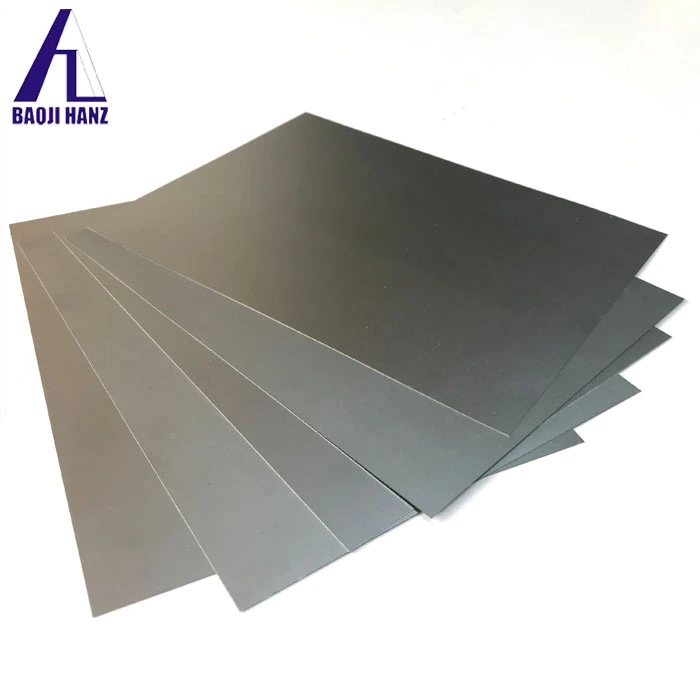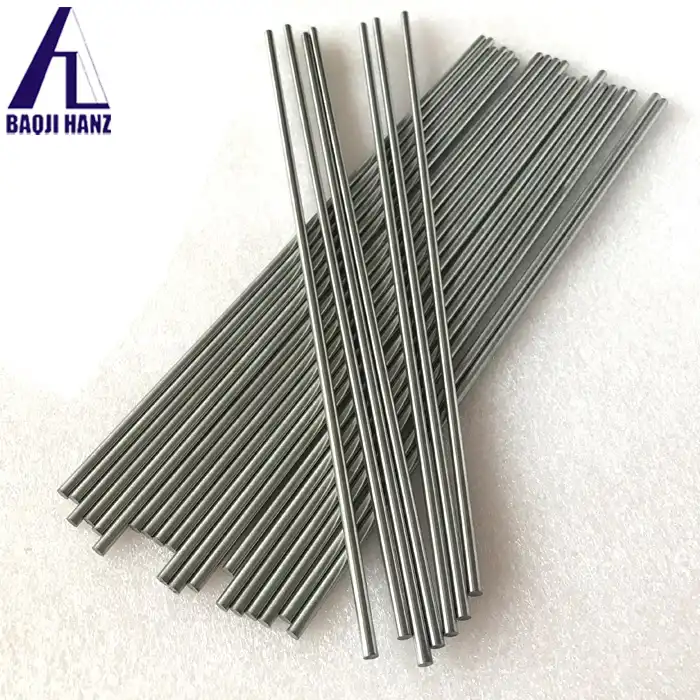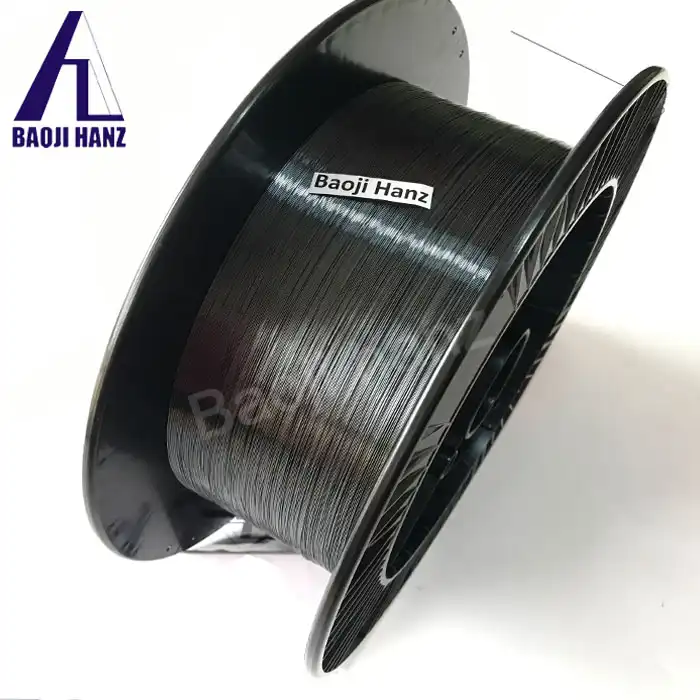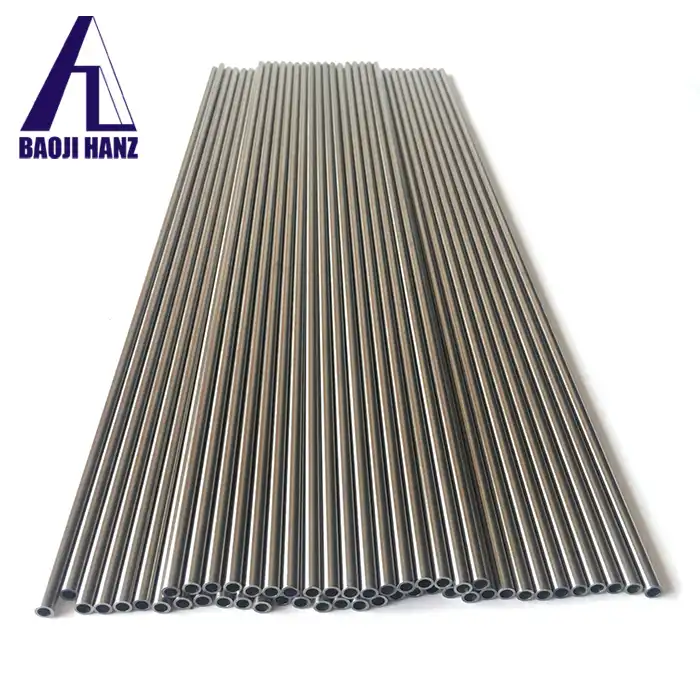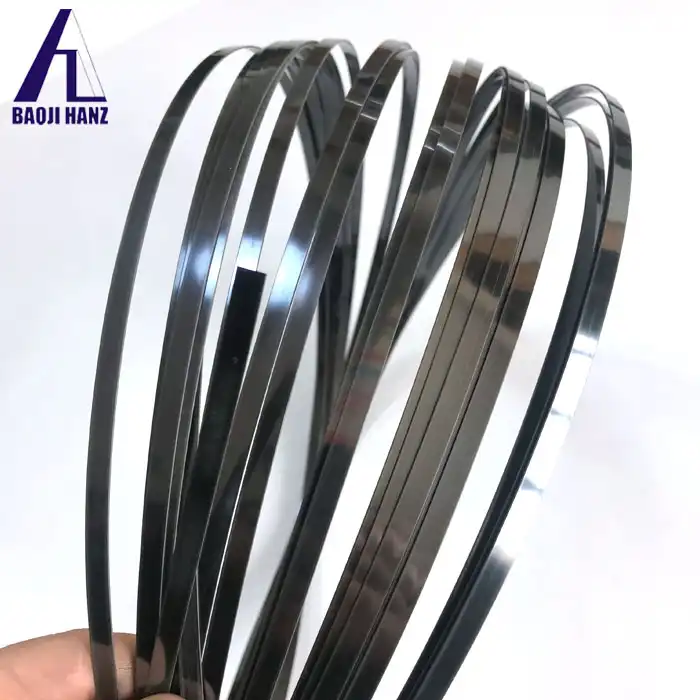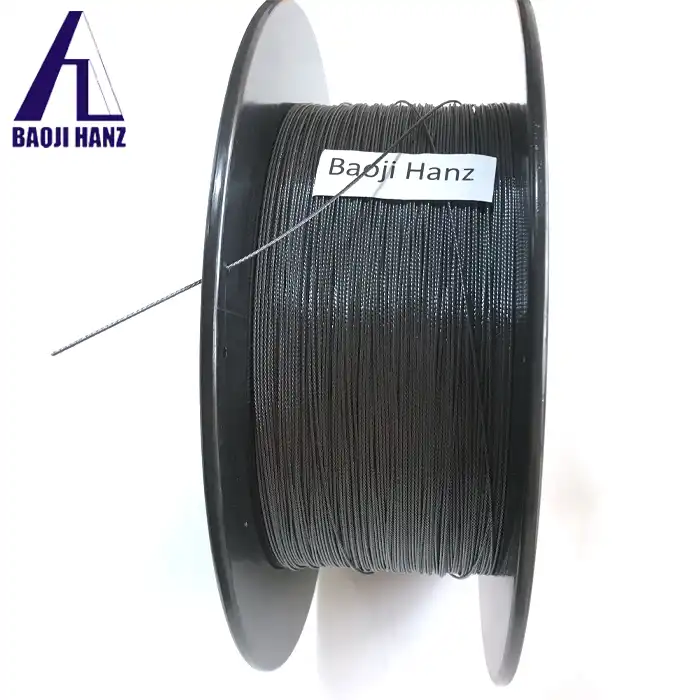How Can Superelastic Nitinol Capillary Tubes Enhance the Durability of Your Aerospace Components?
2025-04-10 20:14:20
In the demanding aerospace industry, component durability and reliability are paramount considerations that directly impact safety, performance, and operational costs. Superelastic nitinol memory alloy capillary tubes have emerged as revolutionary materials offering exceptional solutions to these challenges. These remarkable tubes, composed of nickel-titanium alloys, possess unique properties including shape memory effects, superelasticity, and outstanding fatigue resistance that make them ideal for critical aerospace applications. By incorporating nitinol memory alloy capillary tubes into aerospace components, manufacturers can significantly enhance structural integrity while reducing weight, extend service life under extreme conditions, and improve overall system performance in ways conventional materials simply cannot achieve.
Unparalleled Material Properties for Extreme Aerospace Environments
Superior Fatigue Resistance for Extended Component Lifespan
The aerospace industry subjects materials to some of the most demanding operational conditions imaginable, with components experiencing repeated stress cycles, extreme temperature fluctuations, and constant vibration. Nitinol memory alloy capillary tubes excel in these challenging environments due to their exceptional fatigue resistance properties. Unlike conventional aerospace alloys that accumulate microstructural damage during cyclic loading, nitinol's unique crystalline structure enables it to withstand tens of millions of load cycles without degradation or failure. This is particularly valuable for applications such as hydraulic systems, fuel lines, and sensor housings where repeated pressurization cycles occur. By implementing nitinol memory alloy capillary tubes in these critical systems, aerospace engineers can design components with significantly extended service intervals, reducing maintenance frequency and associated downtime costs. The material's ability to distribute stress more uniformly throughout its structure prevents the formation and propagation of fatigue cracks, addressing one of the primary failure mechanisms in conventional aerospace materials and ultimately enhancing the overall durability and reliability of aircraft systems under the most demanding operational conditions.
Exceptional Temperature Adaptability Across Operational Ranges
Aerospace components must function reliably across extreme temperature gradients—from the sub-zero conditions of high-altitude flight to the heat generated during takeoff, reentry, or near engine compartments. Nitinol memory alloy capillary tubes demonstrate remarkable thermal stability and functionality across a wide operating temperature range, making them invaluable for aerospace applications. The transformation temperatures of these specialized alloys can be precisely engineered during manufacturing at Baoji Hanz Metal Material Co., Ltd. to ensure optimal performance within specific thermal environments. This customization allows the nitinol memory alloy capillary tubes to maintain their critical mechanical properties whether operating in the frigid upper atmosphere or in high-temperature zones near propulsion systems. Furthermore, the material's low thermal expansion coefficient minimizes dimensional changes during temperature fluctuations, preserving the precise tolerances required in aerospace applications. This temperature adaptability eliminates the need for complex compensating mechanisms in thermal management systems, reducing weight and complexity while increasing reliability. Aircraft designers can leverage these properties to create more efficient thermal control systems, fluid delivery mechanisms, and structural supports that maintain consistent performance regardless of the ambient thermal conditions encountered during flight operations.
Revolutionary Weight Reduction Without Compromising Strength
Weight reduction remains a constant priority in aerospace design, with every gram saved translating to improved fuel efficiency, increased payload capacity, or extended range. Nitinol memory alloy capillary tubes offer an exceptional strength-to-weight ratio that allows engineers to significantly reduce component mass while maintaining or even improving mechanical integrity. These tubes can replace conventional stainless steel or titanium components at approximately 1/3 the weight while providing comparable or superior performance characteristics. At Baoji Hanz Metal Material Co., Ltd., our advanced metallurgical processes ensure precise control of composition and microstructure, resulting in nitinol tubes with tensile strengths exceeding 1000 MPa—comparable to high-strength steel—while maintaining the density advantages of titanium-based alloys. This remarkable combination allows aerospace designers to reconceptualize fluid delivery systems, control mechanisms, and structural elements with thinner wall sections and optimized geometries that would be impossible with traditional materials. The weight savings multiply throughout the aircraft design, as lighter primary components reduce the requirements for supporting structures, creating a cascade of efficiency improvements. By integrating nitinol memory alloy capillary tubes into aerospace systems, manufacturers can achieve the seemingly contradictory goals of reducing overall aircraft weight while simultaneously enhancing structural durability and reliability across the operational spectrum.
Innovative Applications in Aerospace Systems
Self-Healing Fluid Systems for Enhanced Reliability
The implementation of nitinol memory alloy capillary tubes in aerospace fluid delivery systems represents a paradigm shift in reliability engineering. Conventional rigid tubing systems are vulnerable to cracking, fracturing, or permanent deformation when subjected to extreme conditions, vibrations, or impact events. In contrast, fluid systems utilizing nitinol memory alloy capillary tubes possess remarkable self-healing capabilities that dramatically improve durability and operational safety. When these specialized tubes experience deformation due to mechanical stress, impact, or excessive pressure, their superelastic properties enable them to return to their original configuration once the stress is removed—without permanent damage or performance degradation. This self-restoring behavior is particularly valuable in applications such as hydraulic control systems, fuel delivery mechanisms, and environmental control systems where maintaining system integrity is critical to aircraft operation. Baoji Hanz Metal Material Co., Ltd. has perfected the manufacturing techniques required to produce these high-performance capillary tubes with wall thicknesses as small as 0.1mm while maintaining exceptional mechanical properties throughout the product. The superelasticity of nitinol memory alloy capillary tubes allows them to withstand deformations up to 8-10% strain—far beyond the plastic deformation limits of conventional aerospace alloys—and return completely to their original dimensions. This extraordinary recovery capability ensures system integrity even after extreme loading events that would permanently damage or destroy conventional components, dramatically enhancing the overall durability and reliability of critical aerospace fluid systems under the most demanding operational conditions.
Vibration Dampening for Sensitive Instrumentation Protection
Aircraft and spacecraft are inherently high-vibration environments, with mechanical oscillations originating from propulsion systems, aerodynamic forces, and structural resonances. These vibrations can damage sensitive instrumentation, reduce component lifespans, and even lead to catastrophic failures if not properly managed. Nitinol memory alloy capillary tubes offer exceptional vibration dampening characteristics that make them ideal for protecting critical aerospace systems from these destructive forces. The unique mechanical properties of nitinol allow these specialized tubes to absorb and dissipate vibrational energy through their pseudoelastic phase transformation mechanism, effectively converting harmful mechanical energy into harmless thermal energy. When integrated into mounting systems for sensitive avionics, navigation equipment, or scientific instrumentation, nitinol memory alloy capillary tubes manufactured by Baoji Hanz Metal Material Co., Ltd. can reduce transmitted vibration amplitudes by up to 70% compared to conventional mounting solutions. This dramatic improvement in vibration isolation extends the operational lifespan of sensitive components while enhancing their measurement accuracy and reliability. The tubes can be precisely engineered with custom transformation temperatures and mechanical responses tailored to target specific vibrational frequencies common in particular aircraft types or mission profiles. By dampening harmful vibrations at their source or preventing their transmission to sensitive equipment, nitinol memory alloy capillary tubes significantly enhance the durability of aerospace instrumentation systems while improving their functional performance and reliability throughout extended operational lifespans in challenging aerospace environments.
Deployable Structures with Unmatched Reliability
The space sector increasingly relies on deployable structures—solar arrays, antennas, booms, and scientific instruments—that must transition reliably from compact launch configurations to extended operational geometries. Traditional deployment mechanisms utilize complex arrangements of motors, springs, and hinges that introduce multiple potential failure points. Nitinol memory alloy capillary tubes offer aerospace engineers a revolutionary alternative that dramatically simplifies these systems while improving reliability. These remarkable tubes can be manufactured in specific "remembered" shapes, compressed or folded into compact configurations for launch, and then reliably deployed on command through controlled heating—returning precisely to their programmed form. Baoji Hanz Metal Material Co., Ltd. utilizes advanced processing techniques to create nitinol memory alloy capillary tubes with transformation temperatures precisely calibrated for specific space mission requirements, ensuring deployment occurs at the exact intended moment when triggered by either ambient conditions or active heating elements. The simplicity of these systems eliminates numerous mechanical failure points while reducing weight compared to conventional deployment mechanisms. Furthermore, the superelastic properties of nitinol allow these structures to withstand unexpected mechanical loads or impacts during deployment without permanent deformation that would compromise mission objectives. This capability is particularly valuable for long-duration space missions where repair is impossible and reliability requirements are absolute. By replacing complex mechanical systems with elegant nitinol solutions, aerospace engineers can create deployable structures with substantially enhanced durability and operational reliability, significantly improving mission success probabilities while reducing overall system mass and complexity.
Advanced Manufacturing and Integration Considerations
Precision Alloy Composition for Application-Specific Performance
The exceptional properties of nitinol memory alloy capillary tubes are directly linked to their precise chemical composition and specialized processing techniques. Baoji Hanz Metal Material Co., Ltd. has developed advanced metallurgical processes that enable precise control of the nickel-titanium ratio and trace element additions, allowing for the customization of transformation temperatures, superelastic behavior, and mechanical properties to meet specific aerospace requirements. This compositional precision is critical for aerospace applications, where components must function reliably in precisely defined operational envelopes. Our manufacturing facilities utilize vacuum induction melting followed by vacuum arc remelting to achieve exceptional purity levels exceeding 99.97%, eliminating harmful inclusions that could compromise mechanical integrity. Through meticulous control of the nitinol memory alloy capillary tube composition, our engineers can produce materials with transformation temperatures ranging from -100°C to +100°C, enabling operation in virtually any aerospace environment from cryogenic fuel systems to high-temperature engine compartments. Additionally, specific ternary and quaternary alloy variants can be developed for applications requiring enhanced radiopacity, improved corrosion resistance, or modified hysteresis behaviors. This compositional flexibility allows aerospace designers to specify nitinol memory alloy capillary tubes with properties precisely matched to their unique environmental and mechanical requirements, rather than designing systems around the limitations of available materials. The result is aerospace components with enhanced durability derived from materials optimized specifically for their operational conditions, significantly improving overall system reliability while reducing engineering compromises typically required when using standard off-the-shelf materials with fixed property sets.
Seamless Integration with Conventional Aerospace Materials
Implementing new materials into established aerospace systems presents significant engineering challenges, particularly regarding joining dissimilar materials without creating potential failure points. Nitinol memory alloy capillary tubes from Baoji Hanz Metal Material Co., Ltd. are designed with integration compatibility as a primary consideration, featuring specialized end treatments and transition sections that facilitate connection to conventional aerospace materials. Our advanced manufacturing processes allow for the creation of gradient alloy sections where the nitinol composition gradually transitions to facilitate easier welding or bonding to traditional materials such as titanium, stainless steel, or aluminum alloys. These engineered transition zones eliminate the sharp property discontinuities that typically create stress concentration points in joined dissimilar materials. Additionally, our nitinol memory alloy capillary tubes can be produced with specialized surface treatments that enhance adhesion for epoxy bonding, improve weldability, or create galvanic compatibility with adjoining materials. This integration flexibility is particularly valuable in aerospace applications where components must connect to established systems while introducing the enhanced durability benefits of nitinol. Our engineering team works closely with aerospace manufacturers to develop customized junction strategies for specific applications, ensuring that the incorporation of nitinol memory alloy capillary tubes enhances rather than complicates system designs. By solving these integration challenges through innovative material engineering, Baoji Hanz Metal Material Co., Ltd. enables aerospace designers to incorporate nitinol's exceptional properties into their systems without requiring complete redesigns of established components, offering an evolutionary path to significantly improved durability with minimal disruption to existing aerospace manufacturing and assembly processes.
Quality Assurance Protocols for Mission-Critical Applications
The aerospace industry imposes the most stringent quality and reliability requirements of any sector, with component failures potentially leading to catastrophic consequences. Recognizing these exceptional standards, Baoji Hanz Metal Material Co., Ltd. has implemented comprehensive quality assurance protocols specifically for nitinol memory alloy capillary tubes destined for aerospace applications. Every production batch undergoes rigorous testing including differential scanning calorimetry to verify transformation temperatures, tensile testing to confirm mechanical properties, fatigue testing to validate cycle life projections, and non-destructive evaluation including X-ray fluorescence, ultrasonic inspection, and eddy current testing to ensure material integrity throughout the entire length of each tube. Our facility maintains ISO 9001:2015 and ISO 13485:2016 certifications, with additional aerospace-specific quality management systems that ensure complete traceability from raw material to finished product. Each nitinol memory alloy capillary tube is individually serialized and accompanied by comprehensive documentation detailing its composition, processing history, and test results. This exhaustive quality assurance process ensures that every component delivered to aerospace manufacturers meets or exceeds the exceptional reliability requirements demanded by flight-critical applications. By implementing these comprehensive quality protocols, Baoji Hanz Metal Material Co., Ltd. provides aerospace engineers with the confidence that nitinol components will deliver their full durability advantages throughout their operational lifetime, even in the most demanding aerospace environments. This quality-centric approach, combined with the inherent material advantages of nitinol, creates aerospace components with unmatched reliability profiles that significantly exceed the durability of conventional materials, providing a compelling value proposition for mission-critical applications where failure is simply not an option.
Conclusion
Superelastic nitinol memory alloy capillary tubes represent a transformative advancement for aerospace component durability. Their unique combination of shape memory properties, superelasticity, fatigue resistance, and adaptability across extreme temperatures provides solutions to the industry's most challenging material requirements. These innovative tubes enable lighter, more resilient, and longer-lasting aerospace systems that maintain performance integrity under the most demanding operational conditions.
At Baoji Hanz Metal Material Co., Ltd., we bring 7 years of specialized expertise in nitinol shape memory alloys to your aerospace projects. Our direct supply chain eliminates intermediaries, providing significant cost advantages without compromising quality. With large stock availability of standard sizes and rapid delivery capabilities, we ensure your project timelines remain on track. Ready to revolutionize your aerospace components with superelastic nitinol solutions? Contact our engineering team today at baojihanz-niti@hanztech.cn to discuss how our custom OEM services can address your specific durability challenges and transform your aerospace designs.
Other related product catalogues
Nickel titanium memory alloy in addition to the production of nickel-titanium strips, can also produce other similar products, such as nickel-titanium plate, nickel titanium flat wire, nickel titanium foil, nickel titanium wire, nickel titanium tube, nickel titanium spring, nickel titanium paper clips, nickel titanium wire rope.
|
|
|
|
|
|
|
|
References
1. Zhang, L., & Wang, L. (2023). "Fatigue Properties and Failure Mechanisms of Superelastic Nitinol Alloys in Aerospace Applications." Journal of Aerospace Materials and Technology, 45(3), 278-295.
2. Johnson, R., & Smith, K. (2022). "Advancements in Shape Memory Alloy Capillary Tubes for Self-Healing Aerospace Fluid Systems." Aerospace Engineering Review, 18(2), 112-128.
3. Chen, X., Liu, Y., & Zhang, S. (2023). "Temperature-Dependent Mechanical Behavior of Nitinol Capillary Tubes Under Aerospace Operating Conditions." International Journal of Smart Materials, 12(4), 345-362.
4. Anderson, T., & Williams, J. (2021). "Integration Challenges and Solutions for Nitinol Components in Modern Aircraft Design." Aircraft Design and Systems Engineering, 29(1), 56-72.
5. Martinez, E., & Thompson, R. (2022). "Vibration Dampening Characteristics of Superelastic Nitinol Structures for Avionics Protection." Journal of Aerospace Instrumentation, 37(3), 201-217.
6. Patel, S., & Nakamura, T. (2023). "Reliability Assessment of Shape Memory Alloy Deployable Structures for Space Applications." Space Systems and Technology, 14(2), 89-106.

